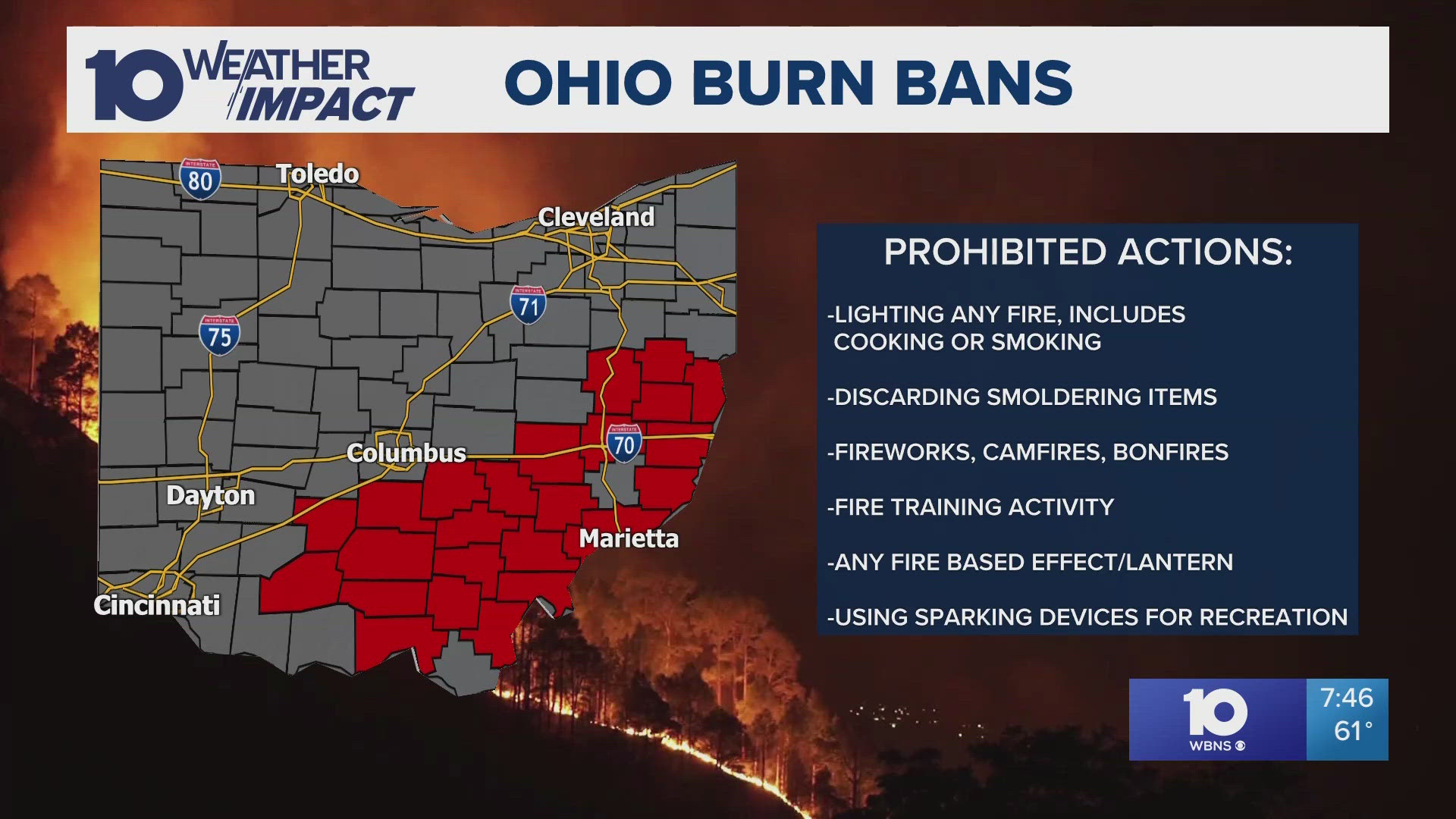COLUMBUS, Ohio — The state fire marshal ordered a ban on open burning for several Ohio counties last week due to the extremely dry conditions.
The ban impacts any county in Ohio identified by the National Oceanic and Atmospheric Administration or United States Department of Agriculture as being in the "extreme drought" or "exceptional drought" categories.
Impacted counties include Athens, Belmont, Carroll, Fairfield, Fayette, Gallia, Guernsey, Harrison, Highland, Hocking, Jackson, Jefferson, Meigs, Monroe, Morgan, Muskingum, Perry, Pickaway, Pike, Ross, Scioto, Tuscarawas, Vinton and Washington.
But what does the open burn ban mean?
Open burning means that the fire and products of combustion do not pass through a chimney through an enclosed chamber. Things like smoking, campfires and non-electric cooking are considered open burning.
Open burning does not include road flares or smudge-pots.
“All Ohioans, particularly homeowners, farmers, and woodland owners, should be cautious during this dry period,” said ODNR Division of Forestry Fire Prevention Manager Aaron Kloss. “Most of the plant materials in Ohio that can fuel wildfires are currently dry and will stay this way until we have significant rainfall. Current dry weather patterns with warm temperatures, low humidities, and wind are increasing the risk of wildland fires in Ohio.”
Some outdoor activities are prohibited under the order.
People in the impacted counties will be prohibited from doing the following:
- Lighting or maintaining a fire of any type at any location
- Smoking (including cigarettes or similar devices and as part of a cooking process)
- Non-electric cooking (regardless of fuel source)
- Using or discharging fireworks
- Throwing or discarding lighted or smoldering material
- Campfires
- Bonfires
- Live fire training events
- Flame effects-based displays or exhibitions
- Using spark-causing devices for recreational purposes.
Activities deemed acceptable by the fire marshal’s office include indoor cooking, outdoor cooking with electric stoves/cooking elements and use of non-flame-based heating or electrical devices.
Even though rain may soon be in the forecast, it will require an extended period of soaking rains to reduce the elevated threats of wildfires throughout the state.
Residents can take steps to prevent accidental wildfires by avoiding burning trash and debris, keeping grass trimmed, not discarding cigarettes and other smoking materials outside, postponing fireworks and avoiding open cooking fires or campfires.
Anyone who sees signs of a wildfire should contact their local fire department immediately.

